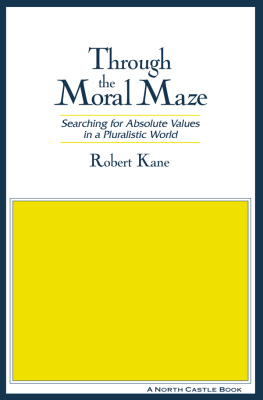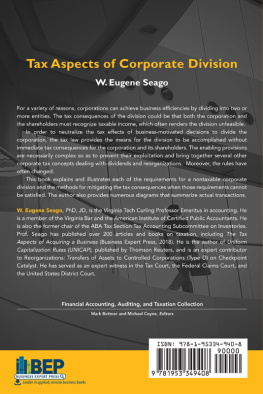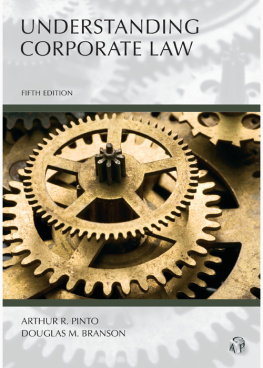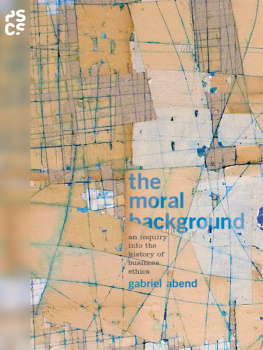Moral Mazes
MORAL MAZES
The World of Corporate Managers
TWENTIETH ANNIVERSARY EDITION
Robert Jackall


Oxford University Press, Inc., publishes works that further
Oxford Universitys objective of excellence
in research, scholarship, and education.
Oxford New York
Auckland Cape Town Dar es Salaam Hong Kong Karachi
Kuala Lumpur Madrid Melbourne Mexico City Nairobi
New Delhi Shanghai Taipei Toronto
With offices in
Argentina Austria Brazil Chile Czech Republic France Greece
Guatemala Hungary Italy Japan Poland Portugal Singapore
South Korea Switzerland Thailand Turkey Ukraine Vietnam
Copyright 1988, 2010 by Robert Jackall
Afterword copyright by Robert Jackall
Published by Oxford University Press, Inc.
198 Madison Avenue, New York, NY 10016
www.oup.com
Oxford is a registered trademark of Oxford University Press.
All rights reserved. No part of this publication may be reproduced, stored in a retrieval system, or transmitted, in any form or by any means, electronic, mechanical, photocopying, recording, or otherwise, without the prior permission of Oxford University Press.
Library of Congress Cataloging-in-Publication Data
Jackall, Robert.
Moral mazes : the world of corporate managers / Robert Jackall. 20th anniversary ed.
p. cm.
Includes bibliographical references and index.
ISBN 9780199729883
1. Business ethicsUnited States. 2. ExecutivesProfessional ethicsUnited States.
3. CorporationsCorrupt practicesUnited States.
I. Title.
HF5387.J29 2009
174.4dc22 2009027219
I am grateful to the editors of several publications for permission to use previously published materials. Several basic themes of this book first appeared in my article Moral Mazes: Bureaucracy and Managerial Work, Harvard Business Review, Vol. 61, No. 5 (SeptemberOctober, 1983), which I use freely here with the permission of the Harvard Business Review. The material from The Apologia of Robert Keayne: The Self-Portrait of a Puritan Merchant, edited by Bernard Bailyn (Gloucester, Mass.: Peter Smith, 1970) that appears in the notes to are reprinted by permission of Newspaper Enterprise Association, Inc.
1 3 5 7 9 8 6 4 2
Printed in the United States of America
on acid-free paper
In Memory of Joseph Bensman,
Arthur J. Vidich, and Robert F. Murphy
Acknowledgments
This book studies the world of corporate managers. It examines managers work, the intricate social contexts of their organizations, their striving for success, the habits of mind they develop, and especially the occupational ethics that they construct to survive and flourish in their world. The book does not treat these issues abstractly. Rather, it reports firsthand fieldwork among corporate managers in a few organizations. Through such a focused appraisal of an institutionally central occupational group, the book tries to explore in some depth situations and experiences that are widespread in our social order.
This book has been a long time in the making and owes a great deal to many people. My first debt is to the organizations that allowed me to do the study (many would not) and especially to the managers, of high, middle, and low rank, who spent many hours patiently educating me in how their world works. The sociologists first task is to get things right and, if I have done that, I owe it to this sizable group of unacknowledged coauthors. Managers may disagree with some of the broader interpretations of their experiences suggested here. I have tried, however, to capture the complexities, ambiguities, and anxieties of their world.
The research would not have been possible without strong institutional support. I am especially indebted to the National Endowment for the Humanities for a yearlong fellowship which, together with an Adsit Fellowship for junior faculty from Williams College, enabled me to do intensive fieldwork in the corporations in 19801981. Several small research grants from Williams College helped support the years of more sporadic fieldwork that followed. Also, a grant-in-aid from the Wenner-Gren Foundation for Anthropological Research enabled me to pursue work on organizational dissenters, some of which is reported here. I received valuable assistance in this latter phase of my study from Michael Baker and Alfred Feliu, formerly of the Educational Fund for Individual Rights, and especially from Louis Clark of the Government Accountability Project. My very special thanks to the men and women who agreed to be interviewed for this portion of my work.
I want to thank my students at Williams College who have listened patiently and responded creatively to my grapplings with the data over the last several years. Opportunities for more formal presentations of various portions of my work were also important. In this regard, I especially want to thank Lawrence Graver, William Moomaw, and Francis Oakley of Williams College, James Kuhn of Columbia University and Donald Shriver of Union Theological Seminary, Troy Duster of the University of California, Berkeley, and Arthur J. Vidich of the New School for Social Research. The lectures and seminars that they arranged were valuable in bringing this work to fruition.
The library staffs at Columbia University, the National Archives in Washington, D.C., the New York Public Library, and especially at Williams College were very helpful, as were staff at the Textile Workers Union of America in New York. I extend special thanks also to Donna Chenail, Shirley Bushika, and especially Peggy Bryant who helped type, print, and revise various editions of the manuscript. I am very grateful, too, to Rodger Davis who assisted in checking sources and especially to Duffy Graham who wrote several research memoranda summarizing pertinent secondary materials and who helped in many other phases of my work.
My thanks to Susan Rabiner, my first editor at Oxford University Press, who nurtured the project in many ways, and to Bill Sisler and Joan Bossert who brought it to completion. Linda Grossman did a fine copyediting job.
Many colleagues and friends have taken time to read and comment on my work. Lila Abu-Lughod, Michael F. Brown, Gillian Feeley-Harnik, Joseph Ferrie, Clara Park, and Laszlo Versenyi each read a portion of the work in early versions and helped me sharpen my treatment. Gene Bell-Villada read several chapters in different stages, always with a keen eye both for content and style. Joseph Bensman, Arthur Vidich, Robert Murphy, Hans Speier, Janice Hirota, Stanford Lyman, Michael Hughey, Charles Payne, Robert Friedrichs, Marty White, Elizabeth Tice, and Duffy Graham, as well as a person in one of the corporations I studied who wishes to remain anonymous, carefully read the entire manuscript and provided me with a great many thoughtful critiques and suggestions. I am most grateful to these men and women for their help. But I separate them from any untoward consequences of their kindness.
Janice Hirota and Yuriko Hirota Jackall sustained me in every way throughout this work. My deepest gratitude and love to them.
The book has its origins in a conversation with Arthur Vidich in 1976 while we reflected on puzzling issues that emerged during my first fieldwork experience, also in a large organization. As I began fieldwork for this book, I got to know Joseph Bensman. Our many conversations over the next few years were invaluable in helping me grasp and articulate my data. And even his last ravaging illness did nothing to deter his relentless editing. Finally, during this same period, I came to know Robert Murphy and appreciate his particular and remarkable anthropological sensibilities. In their work, all three explored the puzzles of humanity and modernity by looking at the world as it is with a skeptical and unflinching eye, with a characteristic passionate dispassion, and with an expansive social imagination that disregards conventional disciplinary boundaries. With deep affection and respect, I am happy to dedicate this work to these fine scholars, fine teachers, and fine men.
Next page








